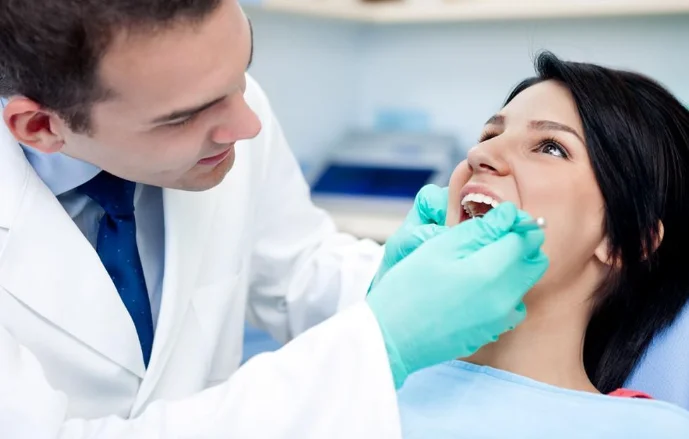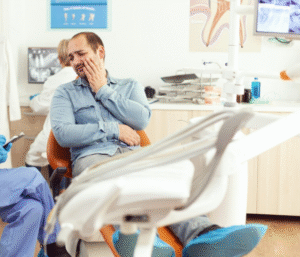Importance of Preventive Dental Care
Preventive dental care is crucial for maintaining strong and healthy teeth. It helps determine potential issues before they become severe, ensuring long-term dental health. Consistent dental exams also provide an opportunity for discussions about tooth replacement in Long Beach, which can be an essential consideration in cases of severe tooth decay or damage.
In Long Beach, tooth replacement options are diverse, ranging from traditional dentures to advanced dental implants. Local dentist offices frequently provide in-person consultations to ascertain the best course of action based on each patient’s unique requirements and preferences. With a focus on both functionality and aesthetics, Long Beach dentists ensure that patients receive high-quality care and effective results for restoring their smiles.
According to a CDC report, good oral health is crucial for overall health and well-being, as it can prevent more serious health conditions like heart disease and diabetes. Frequent cleanings, examinations, and good oral hygiene habits can drastically lower the chance of dental issues. One fundamental aspect of preventive care is establishing a routine that includes professional cleanings and evaluations. In order to avoid gum disease and tooth decay from starting or progressing, your dentist can remove tartar and plaque from areas of your teeth that are hard to reach with routine brushing during these appointments. Additionally, dentists can give individualized guidance on preserving the best possible dental health based on your unique requirements and way of life. This holistic approach ensures that preventive care is not only about reacting to issues but actively promoting dental health continuously.
Essential Practices of Oral Hygiene
Practicing good oral hygiene at home is fundamental for maintaining oral health. Gum disease and cavities can be avoided by using fluoride toothpaste, brushing and flossing twice daily, and using an antimicrobial mouthwash. According to ADA guidelines, changing your toothbrush every three to four months, or earlier if the bristles are already frayed, is also important. Brushing must be done in gentle, circular motions to efficiently clean all surfaces of the teeth without damaging the enamel. Using a soft-bristled toothbrush can also minimize the risk of abrasive damage to the teeth and gums.
Proper flossing techniques are equally important. Many people neglect flossing because they find it time-consuming or aren’t sure how to do it correctly. Use dental floss to carefully brush away food particles and plaque that your toothbrush is unable to reach. Additionally, using interdental brushes or water flossers can be beneficial for individuals with braces or those who find traditional flossing challenging.
Nutritional Advice for Healthy Teeth
Dental health is significantly influenced by nutrition. Vitamins, minerals, and calcium-rich foods strengthen teeth and gums. Foods such as cheese, yogurt, and leafy greens are essential for promoting oral health as they provide necessary nutrients and help neutralize acids in the mouth. Limiting sugary snacks and beverages also helps in preventing tooth decay. Including crunchy foods like apples and carrots, which naturally clean teeth and stimulate gums, is also useful. Avoiding acidic and sugary drinks, such as soda and fruit juices, can also reduce the risk of enamel erosion.
Consuming fiber-rich foods can help keep your teeth in good condition by promoting saliva production, which naturally cleanses the mouth. Throughout the day, drinking lots of water is another easy yet powerful way to keep your teeth healthy. By removing food particles and counteracting the acids that oral bacteria create, water helps to maintain a healthy mouth environment.
Role of Professional Dental Check-ups
Dental checkups on a regular basis involve more than just tooth cleaning. They enable early detection of problems by the dentist, like as cavities, gum disease, and potentially oral cancer. Since many dental disorders can be treated more successfully when discovered early, early detection is essential. Therefore, don’t skip your bi-annual dental visits. Dental professionals provide comprehensive care, which includes cleaning, examination, and personalized advice for maintaining oral health. These check-ups are also opportunities to discuss any concerns you may have and learn about the latest advancements in dental treatments and technology.
Dental professionals also provide invaluable guidance tailored to your specific oral health needs, whether it’s about improving your brushing technique or discussing potential treatments. They can provide tailored guidance on cavity prevention strategies, like fluoride treatments or dental sealants, which are especially beneficial for kids.
How to Make Dental Visits Comfortable
Some people have anxiety when they see the dentist. Speaking with your dentist about your concerns will help reduce your nervousness because they can provide choices like sedation to make the procedure more comfortable. Bringing a friend for support or listening to calming music during your visit can also make the experience more comfortable. Many dental practices now offer soothing environments with amenities like TVs and noise-canceling headphones to help ease patient anxiety. Additionally, scheduling your appointment at a time when you are least stressed and most relaxed can also make the visit more pleasant.
It’s also helpful to establish a good rapport with your dentist. Trust and communication go a long way in reducing fear and discomfort during dental visits. Don’t hesitate to ask questions or express any concerns you may have; a good dentist will take the time to address them and ensure you feel at ease.
Technology and Advancements in Dentistry
Modern dentistry has seen incredible advancements, from laser dentistry to digital impressions. These technologies make procedures quicker, less painful, and more accurate. Keeping up with these advancements can help you make informed decisions about your dental care. Innovations like 3D printing and CAD/CAM technology have revolutionized restorative treatments, providing faster, more precise, and more durable solutions. For instance, digital X-rays produce less radiation than traditional X-rays and provide clearer images, allowing for better diagnosis and treatment planning.
Furthermore, longer-lasting and more natural-looking dental restorations have been made possible by advances in materials science. This implies that patients can benefit from procedures that not only strengthen their dental health but also improve the appearance of their smiles.

Robert Wiley is a versatile and accomplished writer with expertise spanning multiple niches, delivering insightful and engaging content across various fields. His diverse experience and deep knowledge make him a sought-after author in the world of digital writing.




